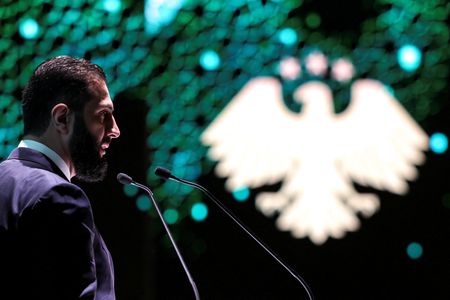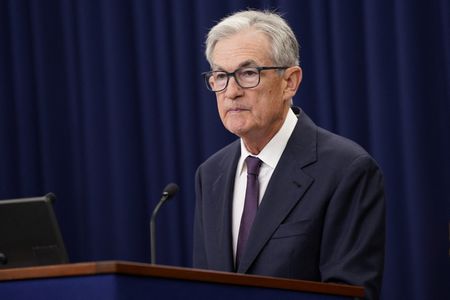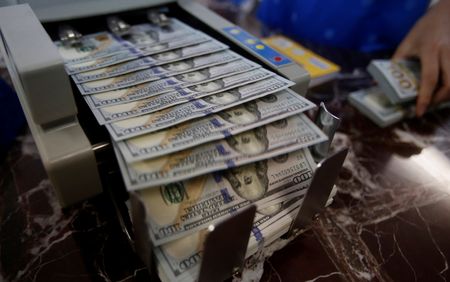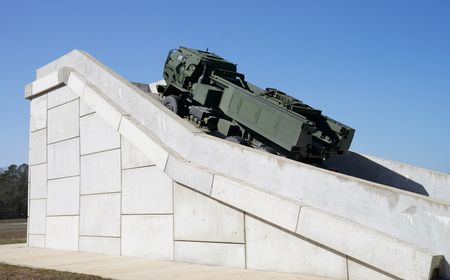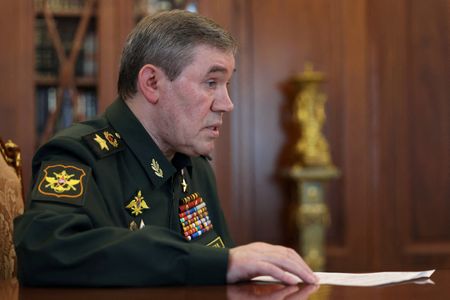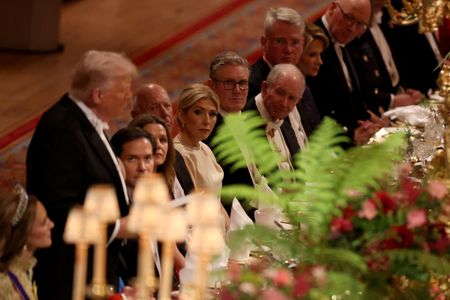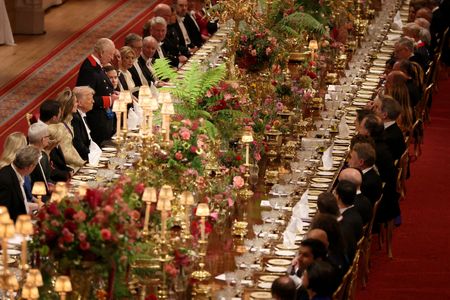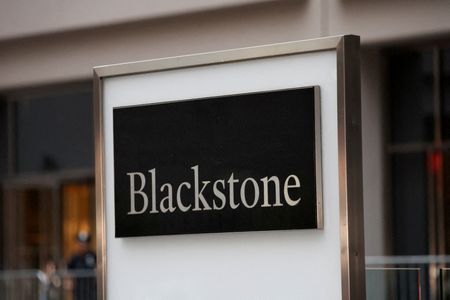By Maya Gebeily
DAMASCUS (Reuters) – Syria’s President Ahmed al-Sharaa said on Wednesday that ongoing negotiations with Israel to reach a security pact could lead to results “in the coming days.”
He told reporters in Damascus the security pact was a “necessity” and that it would need to respect Syria’s airspace and territorial unity and be monitored by the United Nations.
Syria and Israel are in talks to reach an agreement that Damascus hopes will secure a halt to Israeli airstrikes and the withdrawal of Israeli troops who have pushed into southern Syria.
Reuters reported this week that Washington was pressuring Syria to reach a deal before world leaders gather next week for the UN General Assembly in New York.
But Sharaa, in a briefing with journalists including Reuters ahead of his expected trip to New York to attend the meeting, denied the U.S. was putting any pressure on Syria and said instead that it was playing a mediating role.
He said Israel had carried out more than 1,000 strikes on Syria and conducted more than 400 ground incursions since December 8, when the rebel offensive he led toppled former Syrian leader Bashar al-Assad.
Sharaa said Israel’s actions were contradicting the stated American policy of a stable and unified Syria, which he said was “very dangerous.”
He said Damascus was seeking a deal similar to a 1974 disengagement agreement between Israel and Syria that created a demilitarized zone between the two countries.
He said Syria sought the withdrawal of Israeli troops but that Israel wanted to remain at strategic locations it seized after December 8, including Mount Hermon. Israeli ministers have publicly said Israel intends to keep control of the sites.
He said if the security pact succeeds, other agreements could be reached. He did not provide details, but said a peace agreement or normalization deal like the U.S.-mediated Abraham Accords, under which several Muslim-majority countries agreed to normalize diplomatic ties with Israel, was not currently on the table.
He also said it was too early to discuss the fate of the Israeli-occupied Golan Heights because it was “a big deal.”
Reuters reported this week that Israel had ruled out handing back the zone, which Donald Trump unilaterally recognized as Israeli during his first term as U.S. president.
“It’s a difficult case – you have negotiations between a Damascene and a Jew,” Sharaa told reporters, smiling.
SECURITY PACT DERAILED IN JULY
Sharaa also said Syria and Israel had been just “four to five days” away from reaching the basis of a security pact in July, but that developments in the southern province of Sweida had derailed those discussions.
Syrian troops were deployed to Sweida in July to quell fighting between Druze armed factions and Bedouin fighters. But the violence worsened, with Syrian forces accused of execution-style killings and Israel striking southern Syria, the defense ministry in Damascus and near the presidential palace.
Sharaa on Wednesday described the strikes near the presidential palace as “not a message, but a declaration of war,” and said Syria had still refrained from responding militarily to preserve the negotiations.
(Reporting by Maya Gebeily; Editing by Chris Reese and Daniel Wallis)

